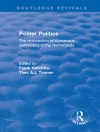Human trafficking is one of the most urgent political challenges of our global age. As the UN defines it, human trafficking is essentially a form of non-institutional slavery, but also includes the trafficking of human organs. It has been resistant to abolition and difficult to combat. Human trafficking is organized through networks and is clandestine in nature, making it very hard for governments to even detect. Yet it is arguably the most severe form of human exploitation in the world. Traffickers trade in the immediate human suffering of their ‘goods’. Human trafficking is a pressing political issue for two key reasons. First, because its victims are often subjected to virtual slavery, exposing them to severe physical and mental abuse. Their rights are brutally violated and they are robbed of their f- damental freedom and dignity. The severity and estimated scope of this abuse has made the issue a priority for the American and German governments. Second, – man trafficking is estimated to be one of the top three sources of income globally, for organized crime. Only trafficking in drugs and arms surpasses human trafficking as a means for such illegal networks to generate funds. Criminal networks undermine the integrity of democratic states and destabilize their social and economic order. – come generated from human trafficking provides such networks with the resources they need to sustain a wide range of harmful activities.
Inhaltsverzeichnis
International Anti Human Trafficking Policy Frameworks.- Toward a Theoretical Human Trafficking Policy Framework.- Anti Human Trafficking Policy Frameworks in The United States of America.- Anti Human Trafficking Policy Frameworks in The Federal Republic of Germany.- Improving Methods for Estimating Human Trafficking Scope.- Conclusions.
Über den Autor
Dr. Christal Morehouse completed her Ph.D. in political science at the Humboldt University in Berlin. She is currently a Program Manager for the Bertelsmann Stiftung in the field of migration and integration.












